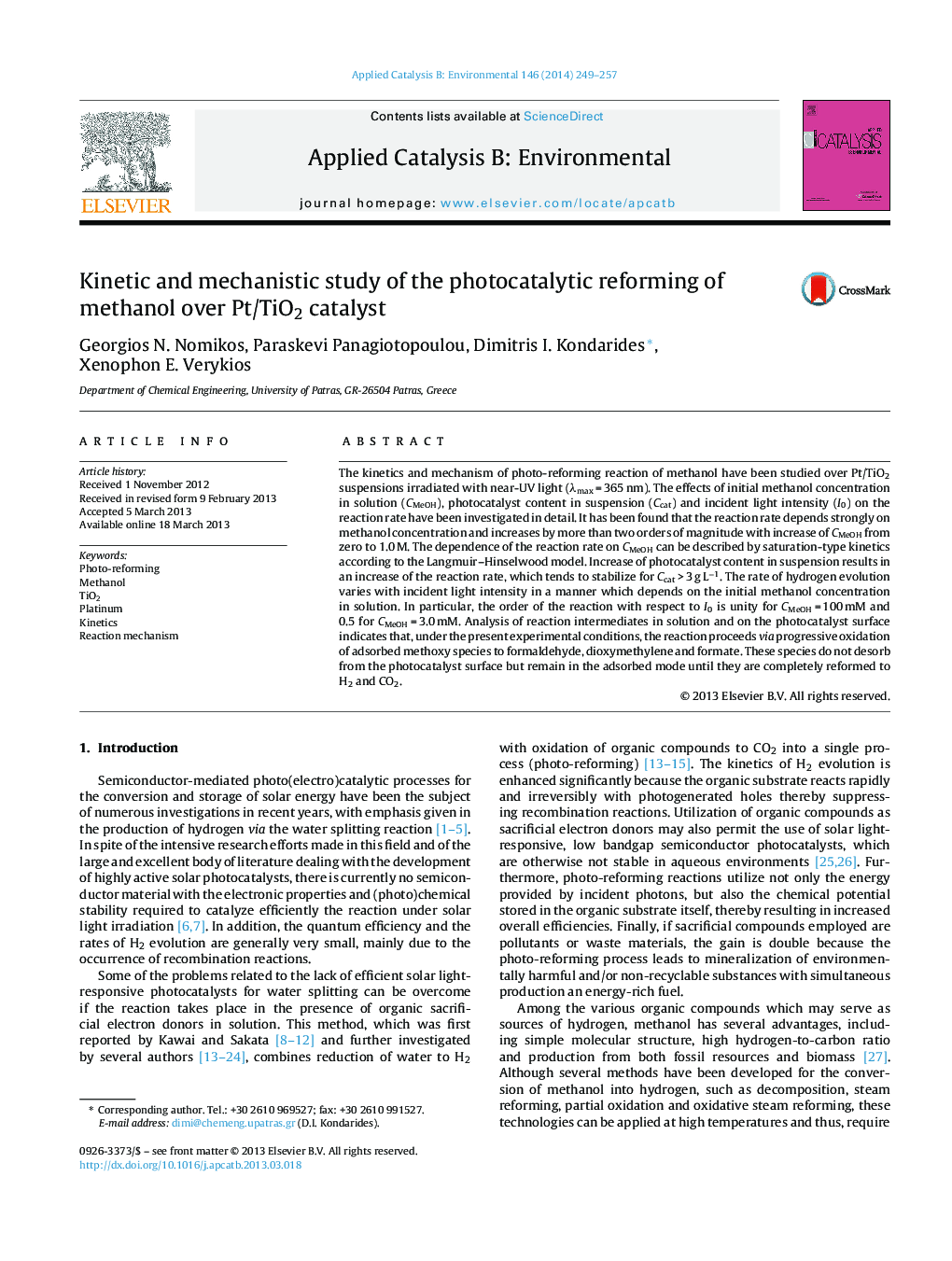| Article ID | Journal | Published Year | Pages | File Type |
|---|---|---|---|---|
| 45205 | Applied Catalysis B: Environmental | 2014 | 9 Pages |
•Methanol can be photo-reformed efficiently into H2 and CO2 over Pt/TiO2 catalyst.•The rate increases by more than two orders of magnitude with increase of methanol concentration.•The reaction order with respect to incident light intensity depends on methanol concentration.•The reaction proceeds with intermediate formation of formaldehyde, dioxymethylene and formate.
The kinetics and mechanism of photo-reforming reaction of methanol have been studied over Pt/TiO2 suspensions irradiated with near-UV light (λmax = 365 nm). The effects of initial methanol concentration in solution (CMeOH), photocatalyst content in suspension (Ccat) and incident light intensity (I0) on the reaction rate have been investigated in detail. It has been found that the reaction rate depends strongly on methanol concentration and increases by more than two orders of magnitude with increase of CMeOH from zero to 1.0 M. The dependence of the reaction rate on CMeOH can be described by saturation-type kinetics according to the Langmuir–Hinselwood model. Increase of photocatalyst content in suspension results in an increase of the reaction rate, which tends to stabilize for Ccat > 3 g L−1. The rate of hydrogen evolution varies with incident light intensity in a manner which depends on the initial methanol concentration in solution. In particular, the order of the reaction with respect to I0 is unity for CMeOH = 100 mM and 0.5 for CMeOH = 3.0 mM. Analysis of reaction intermediates in solution and on the photocatalyst surface indicates that, under the present experimental conditions, the reaction proceeds via progressive oxidation of adsorbed methoxy species to formaldehyde, dioxymethylene and formate. These species do not desorb from the photocatalyst surface but remain in the adsorbed mode until they are completely reformed to H2 and CO2.
Graphical abstractFigure optionsDownload full-size imageDownload as PowerPoint slide
